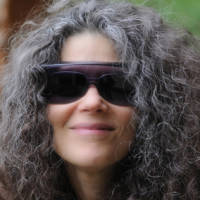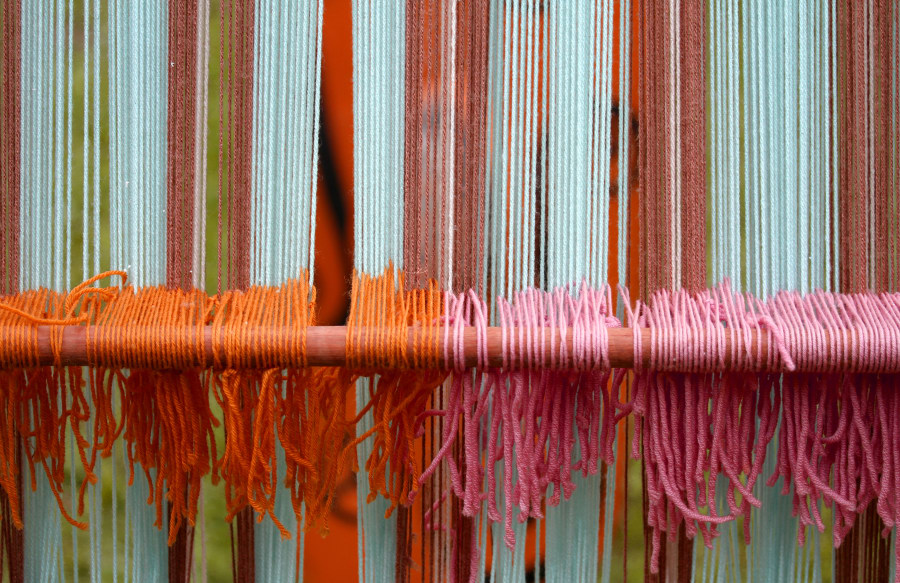
Claire Spector is a legally blind contemporary textile established artist. Since 2005, her near vision has been multiple, misaligned, and unstable. She is very sensitive to light, motion and geometric patterns, walks with a red and white cane, and uses assistive technology.When she was quite young, her artist mother Barbara taught her to sew by hand, to knit, draw and make prints. Spector says, “Hand-sewing teaches patience. Piecing by-hand is a meditation…a sense memory of visual close work now guided by touch. My fingers reference edges, seams and tactile embroidery spirals I sew following a flow. Work progresses organically, a bit at a time.” She sews with cotton, linen, wool and silk scraps, remnants and deconstructed clothing using good cotton thread, short #10 quilting and big-eyed Sashiko needles, Perle cotton 8 embroidery thread, sharp cuticle scissors, glass-head pins, and a treasured Japanese pin cushion. She finds the reassuring click of a Clover needle threader and the quiet of hand-sewing is a welcome break from synthesized assistive technology voices, the sewing machine, and the intensity of nonprofit service facilitating medically vulnerable, culturally and linguistically isolated community members. Sharing art created in this fashion opens dialogues and opportunities to explore new possibilities, learn about resources, and discover creative workarounds for a more vibrant life.
(Image description: Claire is smiling. She has a long cascade of curly salt and pepper hair, and has on dark glasses and glare protecting fit-overs.)
